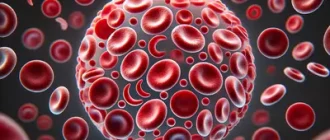Have you ever wondered about changes in your stool and what they could indicate? Spotting blood in your stool can be alarming, but understanding the signs and what they mean is crucial for your health.
Symptoms Associated With Blood in Stool
| Symptom | Percentage of Cases |
|---|---|
| Abdominal Pain | 80% |
| Fatigue | 60% |
| Changes in Bowel Habits | 70% |
| Unexpected Weight Loss | 40% |
| Nausea or Vomiting | 50% |
What Does Blood in Stool Look Like?
Blood in stool can appear in various forms, often depending on its source within the gastrointestinal tract. Here are the common presentations:
- Bright Red Blood: Typically indicates bleeding in the lower gastrointestinal tract, such as the rectum or anus. This may be caused by hemorrhoids or anal fissures.
- Dark, Tarry Stools: Known as melena, this signals bleeding from the upper gastrointestinal tract, such as the stomach or esophagus.
- Hidden Blood: Microscopic blood, not visible to the naked eye, requires laboratory tests (fecal occult blood test) for detection.
Common Symptoms Associated With Blood in Stool
In addition to visible blood, you might experience accompanying symptoms that provide further clues about the underlying cause:
- Abdominal pain or cramping
- Changes in bowel habits (diarrhea or constipation)
- Fatigue or dizziness (due to blood loss)
- Unexpected weight loss
- Nausea or vomiting
What Causes Blood in Stool?
Blood in the stool can result from a wide range of conditions. Here are the most common:
- Hemorrhoids: Swollen veins in the rectum or anus that bleed during bowel movements.
- Anal Fissures: Small tears in the anal lining, often caused by passing hard stools.
- Diverticulosis: Small pouches in the colon that can bleed when inflamed.
- Ulcers: Open sores in the stomach or intestines that can lead to gastrointestinal bleeding.
- Inflammatory Bowel Disease (IBD): Conditions like Crohn’s disease and ulcerative colitis cause inflammation and bleeding.
- Polyps or Colorectal Cancer: Abnormal growths in the colon that may bleed.
- Gastrointestinal Infections: Bacterial, viral, or parasitic infections can irritate the lining of the gut and cause bleeding.
Causes of Blood in Stool (Percentage Breakdown)
| Cause | Percentage |
|---|---|
| Hemorrhoids | 50% |
| Fissures | 60% |
| Diverticulosis | 75% |
| Polyps | 85% |
| IBD | 70% |
When Should You See a Doctor?
While occasional spotting of blood may not always be a cause for concern, certain scenarios warrant immediate medical attention:
- Persistent or heavy bleeding
- Black, tarry stools
- Accompanying symptoms like severe pain, fever, or dizziness
- Family history of colorectal cancer or IBD
Hidden vs. Visible Blood Cases
| Type of Case | Percentage of Cases |
|---|---|
| Visible Blood | 60% |
| Hidden Blood | 40% |
Diagnostic Tests for Blood in Stool
Healthcare providers use various methods to determine the source and cause of bleeding:
- Fecal Occult Blood Test (FOBT): Detects hidden blood and is often a preliminary step for identifying gastrointestinal issues. It’s a non-invasive and widely used method, especially during routine health check-ups.
- Colonoscopy: Visualizes the colon and rectum for abnormalities, including polyps, ulcers, or cancer. This procedure allows for both diagnosis and immediate treatment, such as removing polyps.
- Endoscopy: Examines the upper gastrointestinal tract, including the esophagus, stomach, and small intestine. It can identify ulcers, bleeding, or inflammation that may not be evident through external symptoms.
- Imaging Tests: CT scans or MRI may be used to locate internal bleeding and provide detailed images of the gastrointestinal tract, helping pinpoint hard-to-detect abnormalities like tumors or vascular malformations.
- Blood Tests: Check for anemia, which could result from chronic blood loss, and infections that might explain inflammation or irritation leading to bleeding. These tests often complement other diagnostic tools for a comprehensive evaluation.
Did You Know?
According to the American Cancer Society, colorectal cancer is the third most common cancer diagnosed in the United States. Regular screenings, starting at age 45, are essential for early detection and prevention.
How Can You Prevent Blood in Stool?
While not all causes of blood in stool are preventable, adopting these habits can significantly reduce the risk:
- Maintain a High-Fiber Diet: Prevent constipation and reduce the risk of hemorrhoids and fissures. Consuming fiber-rich foods like fruits, vegetables, whole grains, and legumes keeps the digestive system running smoothly and minimizes the chances of hard stools causing damage.
- Stay Hydrated: Adequate water intake promotes healthy bowel movements. Dehydration is a common cause of constipation, so ensuring you drink plenty of fluids daily can help avoid strain during bowel movements.
- Exercise Regularly: Encourages digestive health by keeping the muscles of the intestines active. Physical activity, whether it’s a brisk walk or a more intense workout, helps maintain regular bowel movements and reduces pressure on the digestive tract.
- Avoid NSAIDs: These can irritate the gastrointestinal lining and cause ulcers. Opt for alternatives under the guidance of a healthcare provider, especially if you’re prone to stomach issues.
- Screen Regularly: Follow recommended screening guidelines for colorectal cancer. Early detection through tests like colonoscopies can prevent minor issues from escalating into serious conditions, and it’s a proactive step in managing digestive health.
Editorial Advice
If you notice blood in your stool, don’t panic. Observe the frequency and amount of bleeding, and note any accompanying symptoms. While minor issues like hemorrhoids are often to blame, persistent or unusual symptoms require professional evaluation. Prioritize regular screenings and a healthy lifestyle to minimize risks and maintain digestive health.
About the Author
Reyus Mammadli is the author of this health blog since 2008. With a background in medical and biotechnical devices, he has over 15 years of experience working with medical literature and expert guidelines from WHO, CDC, Mayo Clinic, and others. His goal is to present clear, accurate health information for everyday readers — not as a substitute for medical advice.







